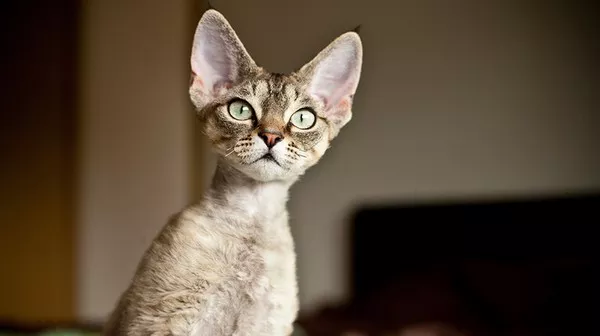Devon Rex cats have captured the hearts of cat enthusiasts with their unique appearance, characterized by their large ears, curly coat, and captivating eyes. Beyond their distinctive physical features, these feline companions are known for their unusually vocal nature. If you’re a proud owner of a Devon Rex or considering adopting one, you might be curious about the reasons behind their chatty behavior. In this article, we delve into the intriguing world of Devon Rex cats and explore the factors that contribute to their vocal tendencies.
Genetic Predisposition
1. Origins and Breed Characteristics
The Devon Rex breed originated in England during the 1960s and is known for its genetic mutation that affects the structure of the hair follicles, resulting in the characteristic curly coat. This same genetic mutation may also influence their vocalization patterns.
2. Communication Through Vocalizations
Devon Rex cats may have inherited a genetic inclination to communicate through vocalizations. Vocal cues are an essential aspect of feline communication, used to express emotions, needs, and desires. The genetic makeup of the Devon Rex breed could contribute to their increased vocal range.
Social and Interactive Nature
1. Need for Interaction
Devon Rex cats are highly social and thrive on human interaction. They enjoy being around their human companions and may use vocalizations to express their desire for attention, playtime, or cuddles.
2. Vocal Bonding
The chatty nature of Devon Rex cats can help strengthen the bond between them and their owners. By vocalizing, these cats engage in a form of communication that fosters connection and reinforces their social ties.
Expressing Emotions
1. Happiness and Contentment
Devon Rex cats may use vocalizations to convey their happiness and contentment. Purring and soft chirping sounds can indicate their satisfaction with their surroundings and interactions.
2. Playfulness and Excitement
When engaged in play or excited about a new toy, Devon Rex cats may express their enthusiasm through a range of vocalizations, from playful meows to trills.
Seeking Attention and Interaction
1. Meowing for Attention
Devon Rex cats are not shy about using their voices to capture your attention. Whether they want to play, be petted, or simply have a chat, their vocalizations are a way of initiating interaction.
2. Response to Environment
Changes in the environment, such as the arrival of new people or animals, can trigger heightened vocalizations as Devon Rex cats communicate their reactions to the situation.
Health and Well-Being
1. Expressing Discomfort
Vocalizations can also be a way for Devon Rex cats to express discomfort or health-related issues. If your normally chatty cat suddenly becomes unusually quiet or produces different types of sounds, it’s essential to monitor their behavior and consult a veterinarian if needed.
2. Frequent Grooming
The unique coat of Devon Rex cats requires more frequent grooming to maintain its condition. Cats that are unhappy with grooming sessions may vocalize their displeasure as a form of protest.
See Also: Why Are Devon Rex Cats Aggressive?
Conclusion
In conclusion, the vocal nature of Devon Rex cats is influenced by a combination of genetic predisposition, social behavior, emotional expression, and the desire for interaction. These chatty feline companions have a unique way of communicating their needs, emotions, and reactions to their environment. As a devoted owner, embracing and understanding their vocal tendencies can deepen your bond and enhance your relationship with your Devon Rex cat. Whether they’re expressing contentment, seeking attention, or sharing their thoughts, the vocalizations of these charismatic cats add a charming and endearing dimension to their already captivating personalities.
























